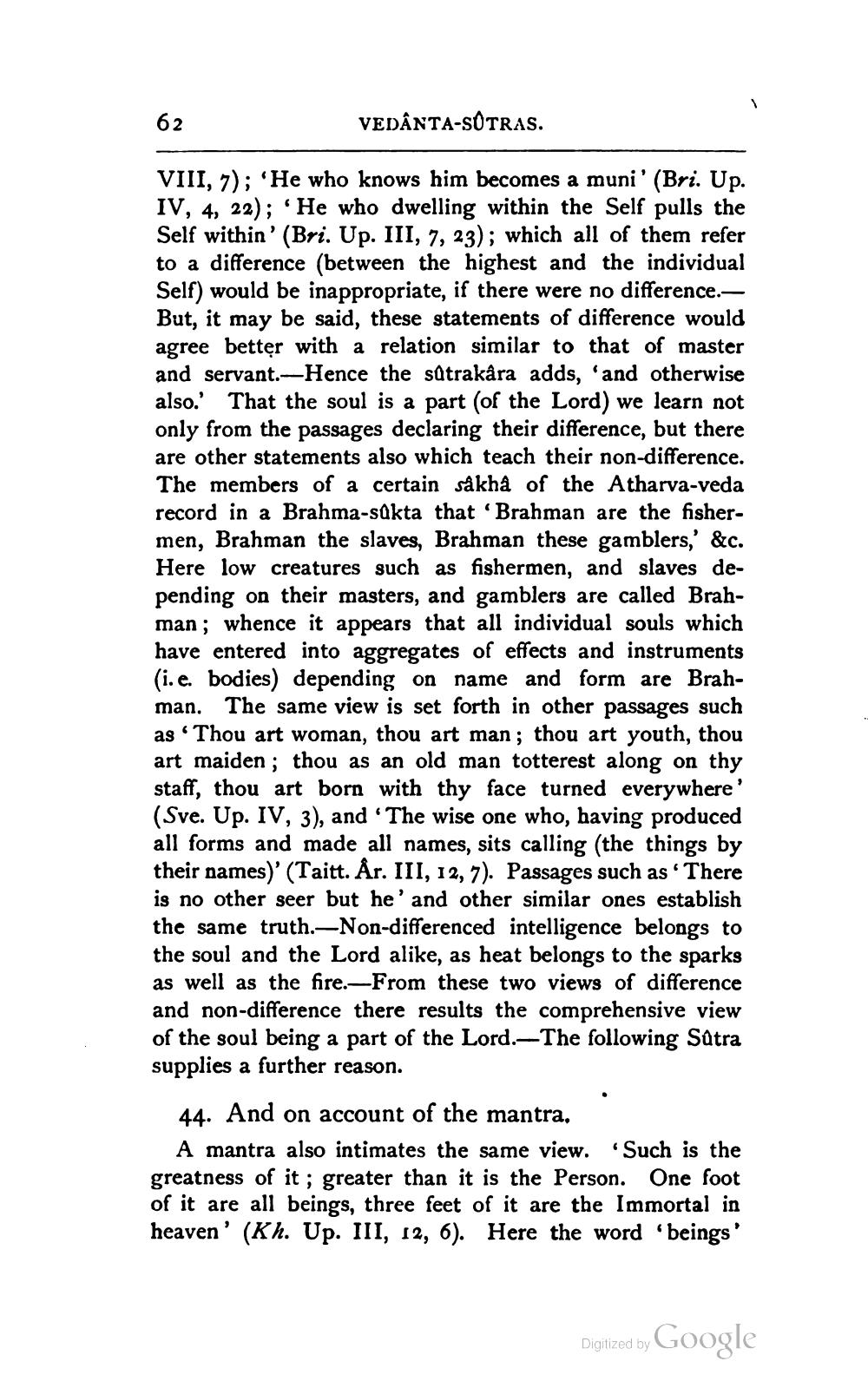________________
62
VEDÂNTA-SOTRAS.
VIII, 7); 'He who knows him becomes a muni' (Bri. Up. IV, 4, 22); "He who dwelling within the Self pulls the Self within' (Bri. Up. III, 7, 23); which all of them refer to a difference (between the highest and the individual Self) would be inappropriate, if there were no difference.But, it may be said, these statements of difference would agree better with a relation similar to that of master and servant.--Hence the strakâra adds, and otherwise also.' That the soul is a part (of the Lord) we learn not only from the passages declaring their difference, but there are other statements also which teach their non-difference. The members of a certain såkha of the Atharva-veda record in a Brahma-sukta that 'Brahman are the fishermen, Brahman the slaves, Brahman these gamblers,' &c. Here low creatures such as fishermen, and slaves depending on their masters, and gamblers are called Brahman; whence it appears that all individual souls which have entered into aggregates of effects and instruments (i.e. bodies) depending on name and form are Brahman. The same view is set forth in other passages such as 'Thou art woman, thou art man; thou art youth, thou art maiden ; thou as an old man totterest along on thy staff, thou art born with thy face turned everywhere' (Sve. Up. IV, 3), and 'The wise one who, having produced all forms and made all names, sits calling (the things by their names)' (Taitt. År. III, 12, 7). Passages such as There is no other seer but he' and other similar ones establish the same truth.—Non-differenced intelligence belongs to the soul and the Lord alike, as heat belongs to the sparks as well as the fire. —From these two views of difference and non-difference there results the comprehensive view of the soul being a part of the Lord. The following Sutra supplies a further reason.
44. And on account of the mantra.
A mantra also intimates the same view. Such is the greatness of it; greater than it is the person. One foot of it are all beings, three feet of it are the Immortal in heaven' (Kh. Up. III, 12, 6). Here the word 'beings'
Digitized by
Digilzed by Google




